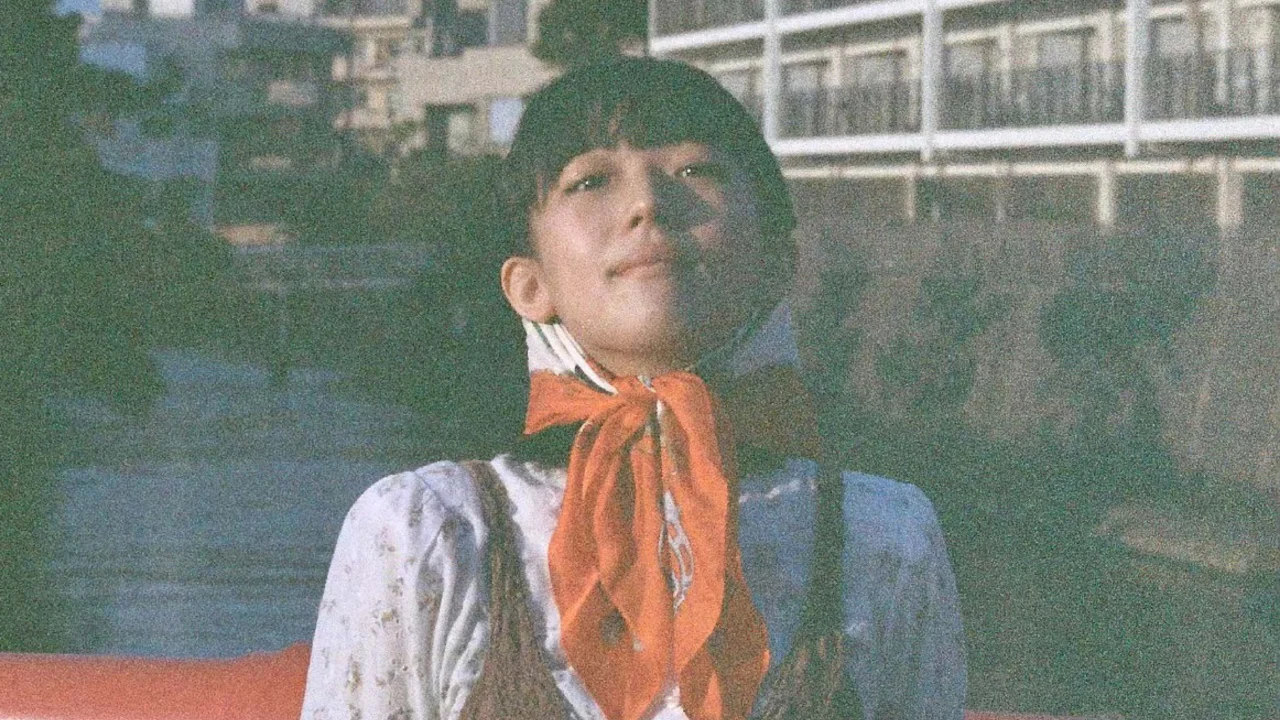INDEX
The Owner’s Vision: A Fulfilled Expression of Personal Taste
By the way, in the 1990s, there was a path for music enthusiasts to discover music similar to what plays at Juha. One of these paths was through the series of disc guide books called ‘Mondo Music,’ published by Libroport ~ Aspect. I read ‘Mondo Music,’ listened to folk and blues introduced by Soichiro Suzuki there, explored pre-war jazz guided by Haruomi Hosono’s interviews, and I also remember discovering John Fahey and Jimmy Giuffre through that book.
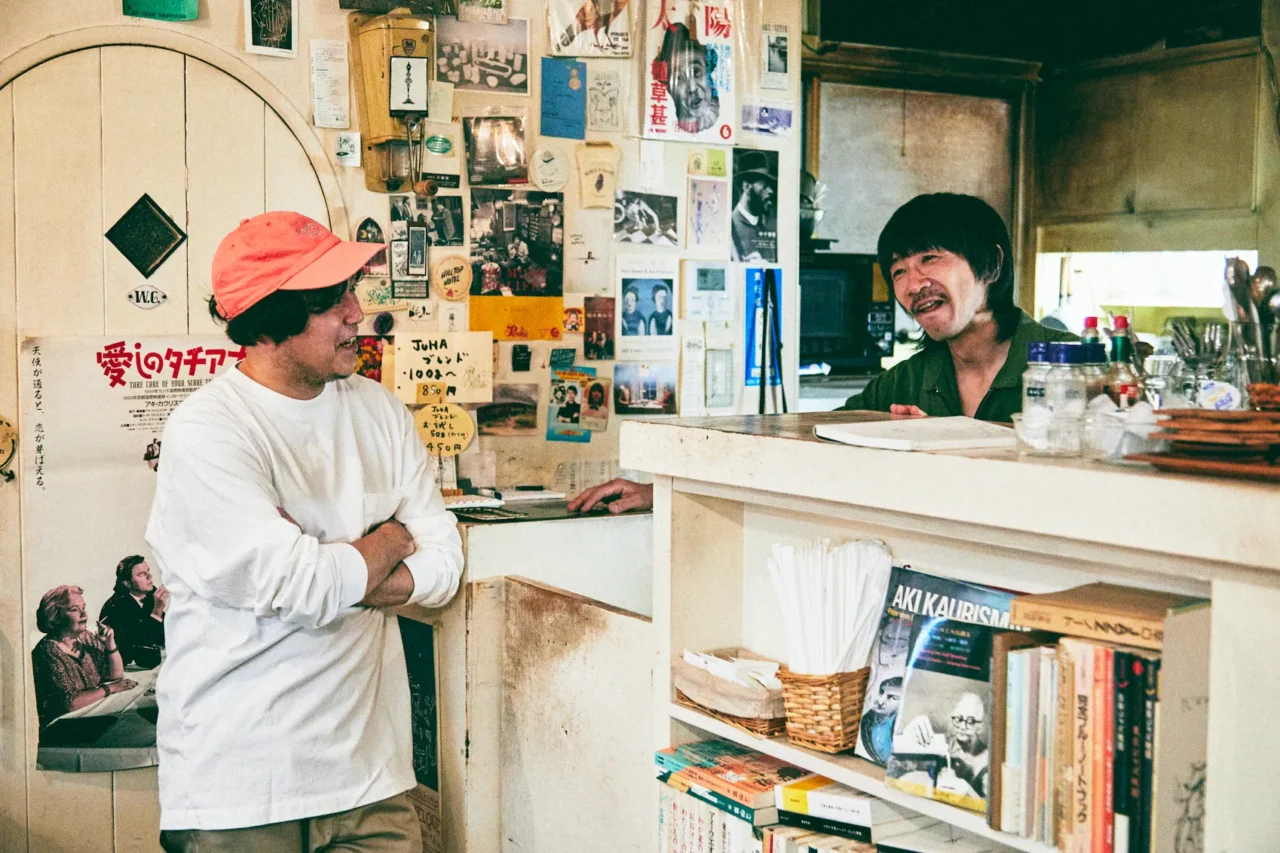
Since Juha’s owner, Mr. Ohba, is of the same generation as me, I assumed our musical paths were similar. When I asked him about it, he surprised me with his answer: ‘Customers often ask if I got into music through “Mondo Music” or through Mr. Hosono, but I actually didn’t go down those paths and don’t know much about them.’ Despite my surprise, I quickly understood his response. Mr. Ohba curated the records at Juha based on his own ears, intuition, experiences, and information from friends, resulting in a collection that now plays at Juha. It makes sense that records from different eras and contexts all sound ‘Juha-esque,’ embodying a mysterious consistency. What plays here isn’t shaped by any specific context or trend, but by Mr. Ohba’s dedication to sounds he personally enjoys. Juha is the fruition of his commitment to staying true to his ‘likes’ to the fullest extent possible.
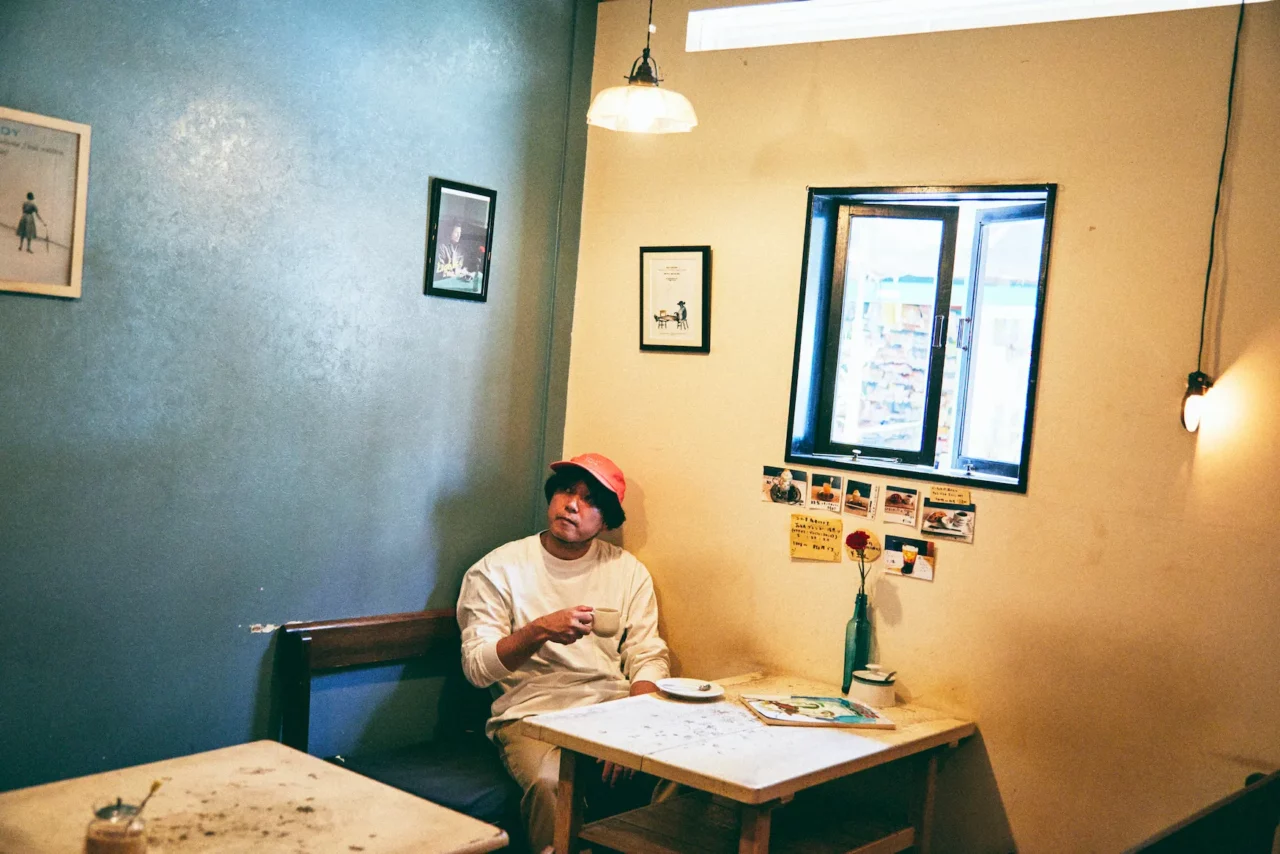
On that day, I had the opportunity to visit before opening hours for an interview, so I walked around the empty shop, examining everything closely. Among posters of Aki Kaurismäki films and flyers related to the jazz-savvy editor Jinichi Uekusa, I noticed a painting on the wall featuring the name Billy Childish. Billy Childish is the frontman of the legendary British garage punk band THEE HEADCOATS. The painting was done by Billy himself. It was so casually displayed that, despite having visited for many years, I only noticed it for the first time on this occasion.
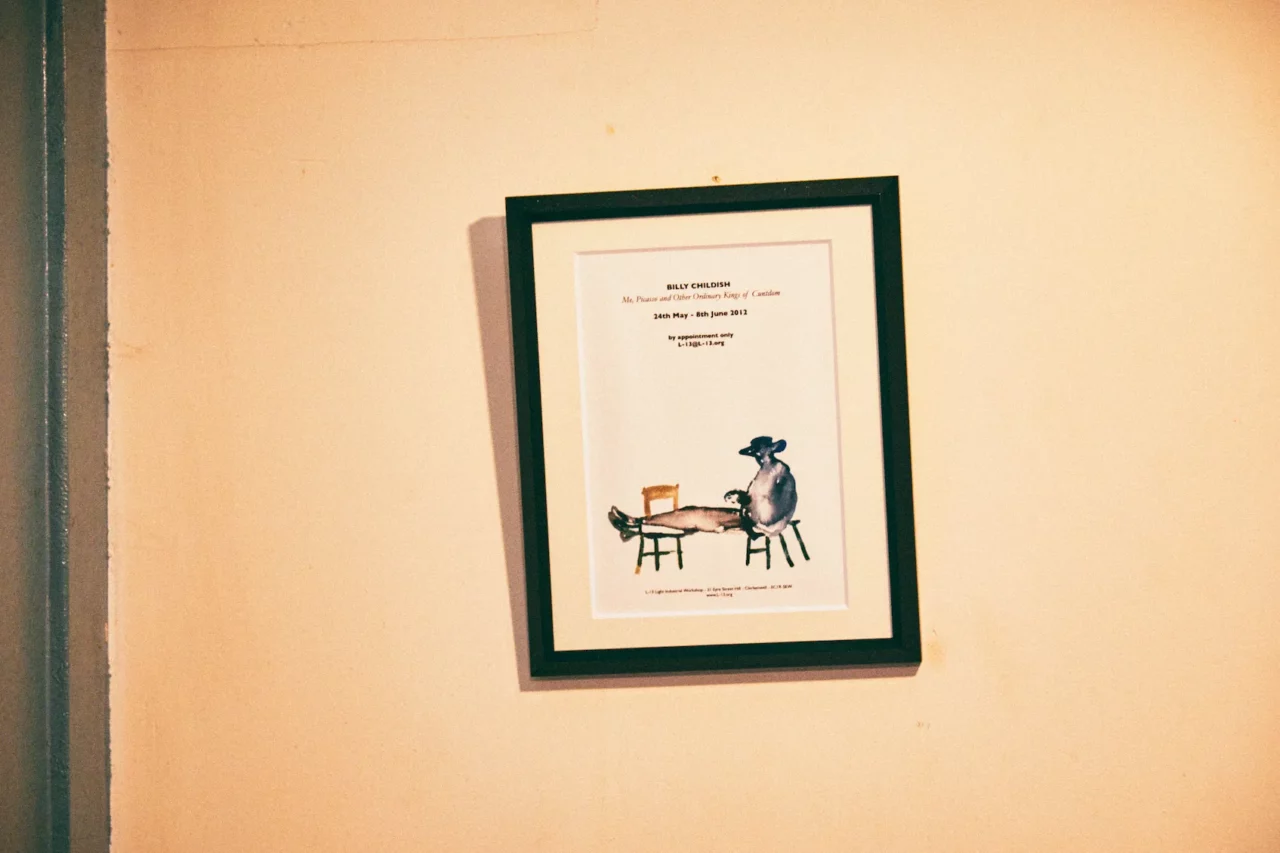
Ohba originally liked garage punk, particularly drawn to Billy and pursued all his expressions as a poet and painter,” he told me. “Indeed, if you like Billy and garage punk, it’s understandable to trace back to pre-war blues at its roots.” At JUHA, not only music but everything placed or displayed is chosen according to Mr. Ohba’s aesthetic sense, and I understood they are all connected. Therefore, that unique worldview that emerges the moment you enter JUHA, and that completeness, must have been born.
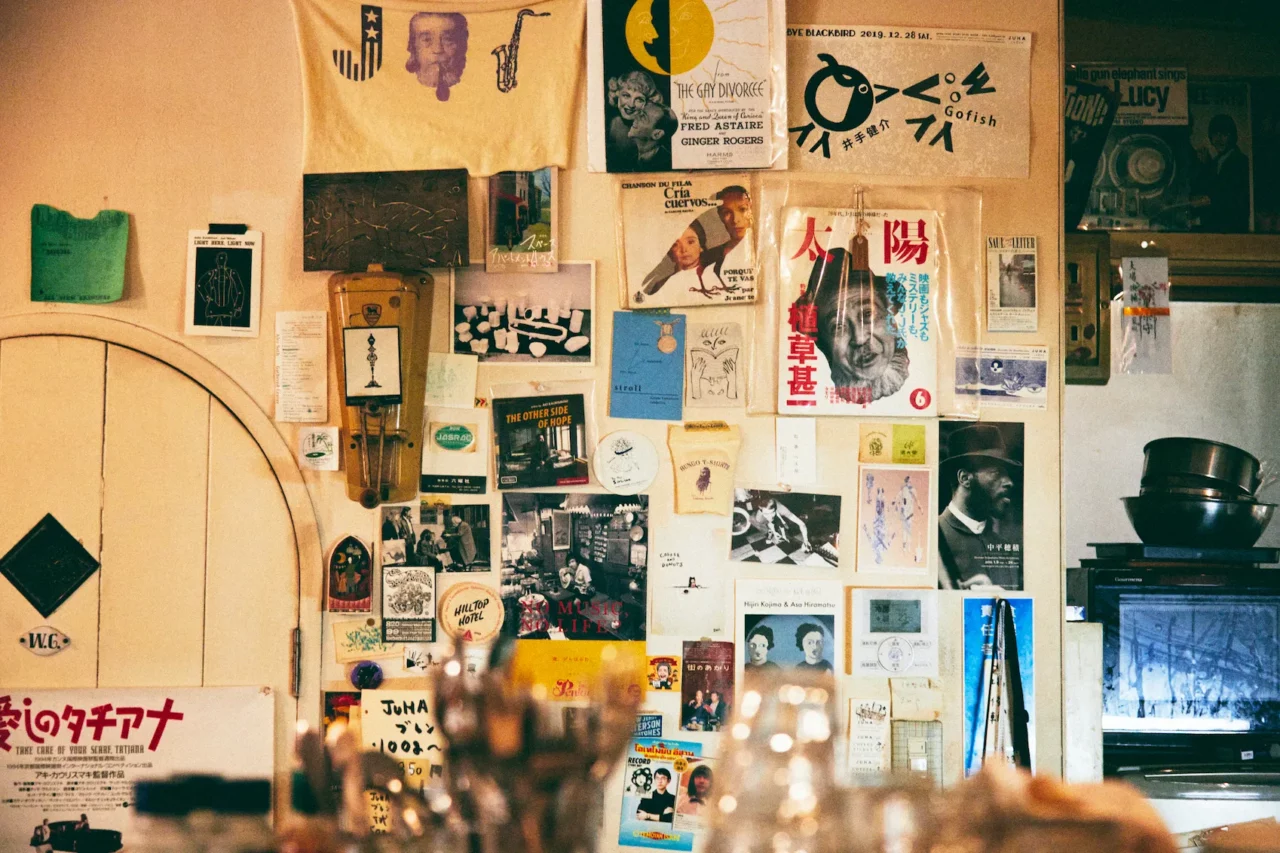
By the way, Mr. Ohba has been collecting records from the Blue Note label again over the past few years. Surely, he will present the classics of jazz café culture with his unique sensibility at JUHA.
JUHA’ Five Albums
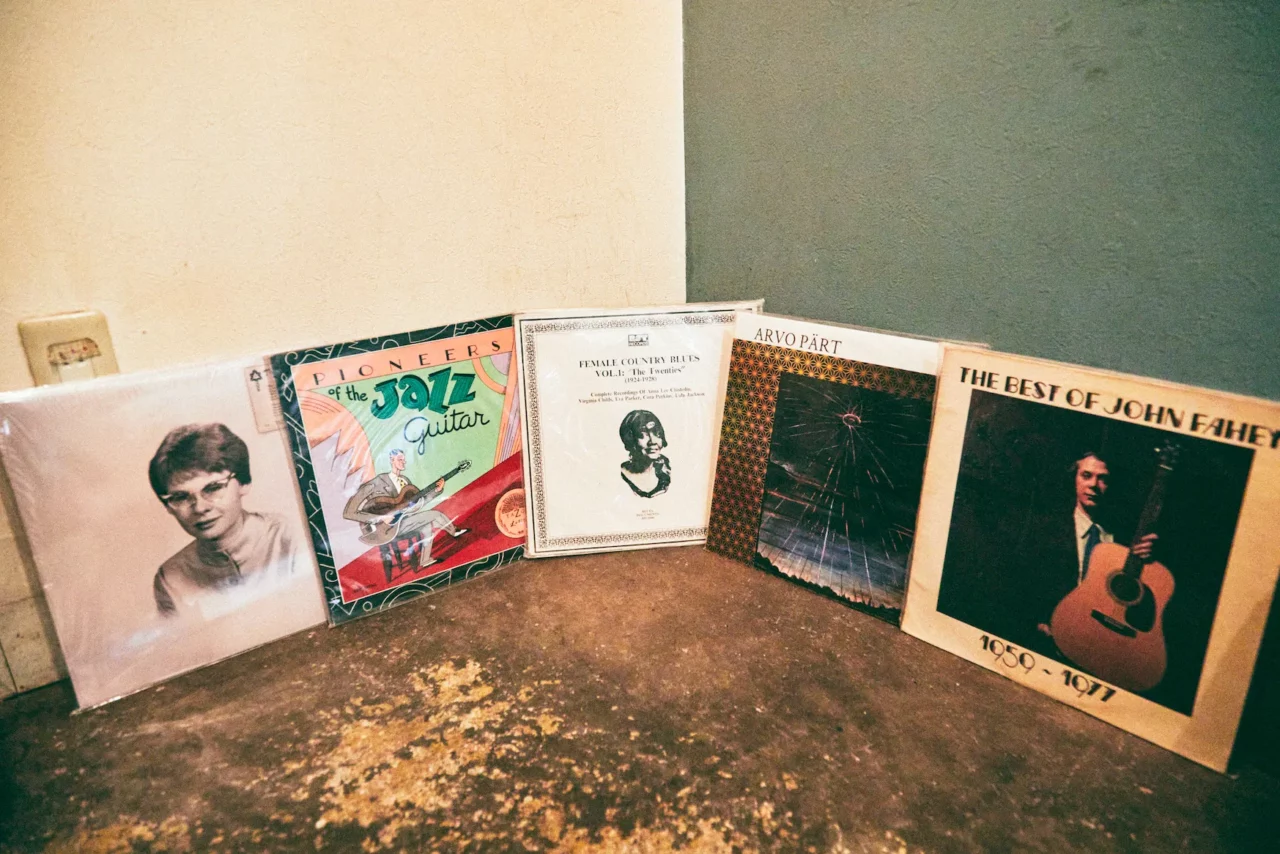
Penny Carson Nichols “Trinidad Seed
V.A. “Pioneers of the Jazz Guitar”
V.A. “Female Country Blues Vol.1: The Twenties (1924-1928)”
Arvo Pärt “Für Alina”
John Fahey “The Best of John Fahey 1959-1977”
JUHA
Address: 2-25-4 Nishiogi Minami, Suginami-ku, Tokyo
Business hours: Tuesday – Friday = 13:00 – 21:00, Saturday, Sunday, and holidays = 12:00 – 20:00
Closed: Mon.
Please check Instagram and X for hours of operation and holidays.
https://www.instagram.com/juha_coffee/
https://x.com/juha_coffee


















